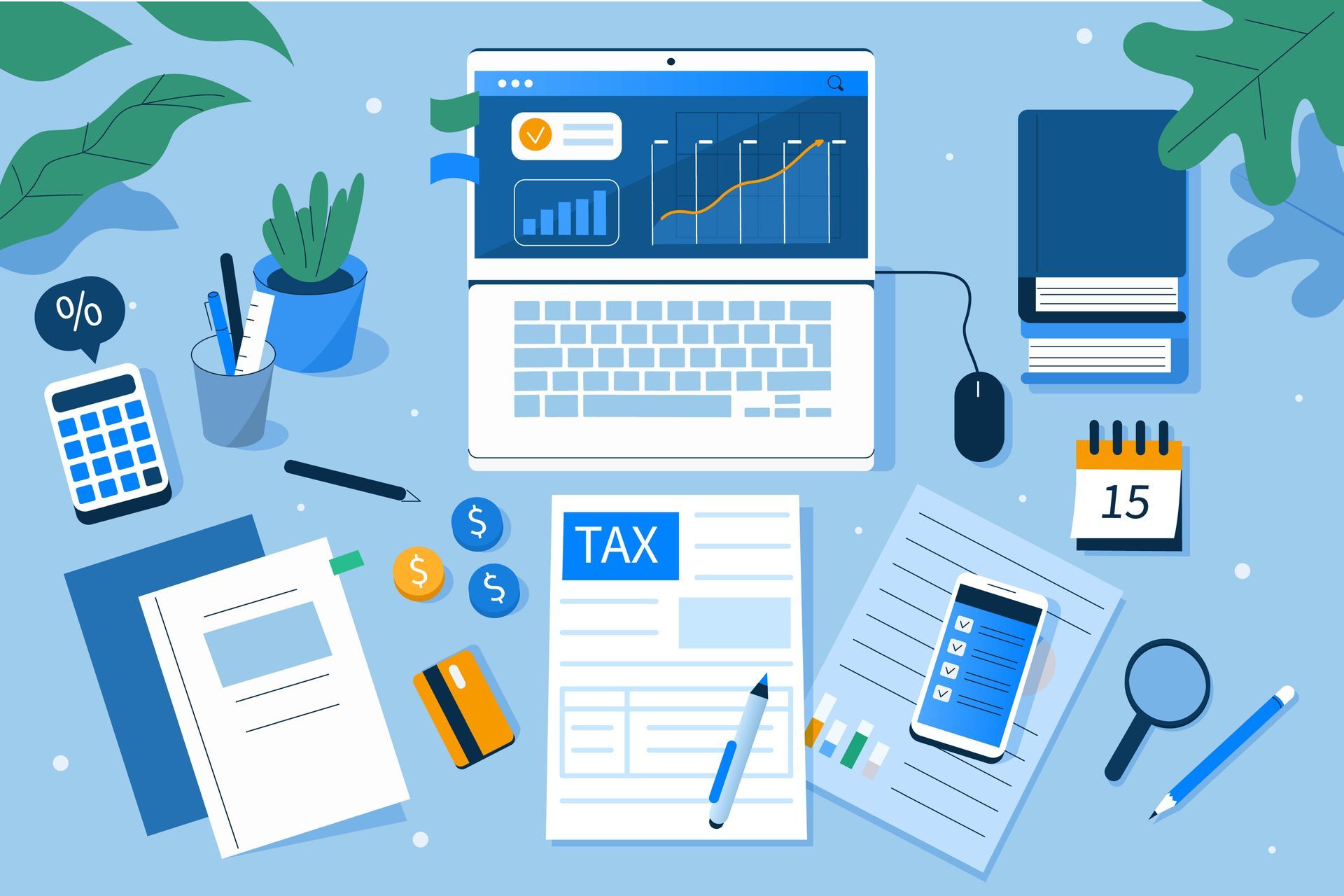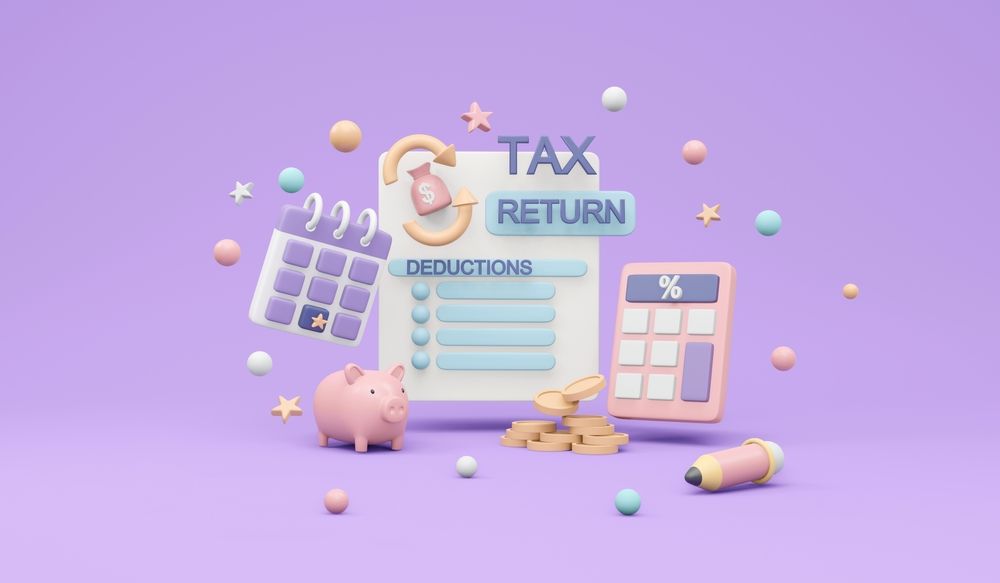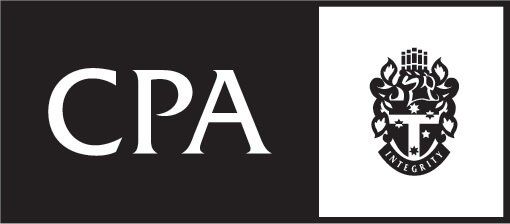Get in Touch
P: (03) 9853 1000
F: (03) 9853 8298
A:
Level 1 86-88 Charles Street,
Kew VIC 3101
PO Box 345
KEW, VIC, 3101
Australia
Crawford News

11 Apr, 2024
Reminder of March 2024 Quarter Superannuation Guarantee Employers are reminded that employee super contributions for the 1 January 2024 to 31 March 2024 quarter must be received by the relevant super funds by 28 April 2024, in order to avoid being liable to pay the SG charge. ATO's small business benchmarks The ATO has updated its small business benchmarks for 2021-22. These benchmarks help taxpayers compare their business turnover and expenses with other small businesses in the same industry. Taxpayers can access the benchmarks on the ATO's website, and then calculate their benchmark using the ATO app 'Business performance check' tool. Quarterly TBAR lodgment reminder SMSFs must report certain events that affect any member's transfer balance account ('TBA') quarterly using transfer balance account reporting ('TBAR'). These events must be reported even if the member's total superannuation balance is less than $1 million. SMSF trustees must report and lodge within 28 days after the end of the quarter in which the event occurs, although they are not required to lodge if no TBA event occurred during the quarter. For example, if an SMSF had a TBA event in the quarter ending 31 March 2024, the trustee of the SMSF must lodge a TBAR by 28 April 2024. If an SMSF does not lodge a TBAR by the required date, the member's TBA may be adversely affected. The member may need to commute any amounts in excess of their transfer balance cap and pay more in excess transfer balance tax. Taxpayer who lived and worked overseas found to be tax resident The Administrative Appeals Tribunal recently held that a taxpayer was a tax resident of Australia, even though he was mostly living and working overseas during the relevant period. The taxpayer was born in Vietnam and obtained Australian citizenship in 1978. He was living and working in Dubai, United Arab Emirates from 2015 until 2020. The taxpayer spent less than two months in Australia for each of the 2017 to 2020 income years visiting his family. The AAT nevertheless held that he was a tax resident of Australia for each of the 2016 to 2020 income years, as he "maintained an intention to return to Australia and an attitude that Australia remained his home". The AAT noted in this regard that the taxpayer: left his wife and three daughters in the family home in Australia while he worked in Dubai, continued to fully support his family financially, and chose to spend each of his leave periods with his family in Australia; maintained his vehicle registrations and Australian drivers licence so he could use the vehicles upon his return to Australia; intended to retire in Australia; failed to demonstrate any connection with Dubai outside of his employment; and maintained his private health insurance. Earning income for personal effort Taxpayers should remember that, if over half their income is from a contract for their personal effort or skills, then their income is classified as personal services income ('PSI'). Taxpayers can receive PSI in almost any industry, trade or profession, e.g., as a financial professional, IT consultant, construction worker or medical practitioner. Taxpayers who earn PSI while running a business (e.g., as a contractor) need to work out if they were a personal services business ('PSB') in the year that they received the PSI, as this will affect the deductions they can claim. Taxpayers can self-assess as being a PSB if they: meet the 'results test' for at least 75% of their PSI, or meet one of the other PSB tests (i.e., the unrelated clients test, the employment test, or the business premises test), and less than 80% of their PSI is from the same entity and its associates. Taxpayers who self-assess as a PSB still need to report their PSI in their income tax return and keep certain records. The information provided in this update is general in nature and if you have any queries of require further information or assistance with the above, please contact our office.

06 Mar, 2024
Super contribution caps increase Superannuation contribution caps are set to increase from the 2025 income year. The concessional contribution cap will increase from $27,500 to $30,000. This 'CC' cap is broadly applicable to employer super guarantee contributions, personal deductible contributions and salary sacrificed contributions. The non-concessional contribution cap will increase from $110,000 to $120,000. This 'NCC' cap is generally applicable to personal non-deductible contributions. The increase in the NCC cap also means that the maximum available under the three-year bring forward provisions will increase from $330,000 to $360,000. This is provided that the 'bring forward' is triggered on or after 1 July 2024. The 'total superannuation balance' threshold for being able to make non-concessional contributions (and the pension general transfer balance cap) will remain at $1.9 million. Small business concessions The ATO has recently issued a reminder that small business owners may be eligible for concessions on the amount of tax they ultimately pay. This depends on their business structure, their industry and their aggregated annual turnover. Small business owners who have an aggregated annual turnover of less than: $2 million can access the small business CGT concessions; $5 million can access the small business income tax offset; and $10 million can access the small business restructure roll-over. The ATO expects small business owners to check their eligibility each year before they apply for any of these concessions. Furthermore, taxpayers generally need to keep records for five years to prove any claims they make. We are always on the look-out for what tax concessions may be of use to our clients based on their individual circumstances. These small business concessions in particular, can be very beneficial when applicable. FBT time is fast approaching! 'FBT time' is just around the corner. Employers need to attend to the following matters this FBT time: Identify if you have an FBT liability regarding fringe benefits they have provided to their employees or their associates between 1 April 2023 and 31 March 2024. Identify if you have an FBT liability as they will need to lodge an FBT return and pay the amount due by 21 May. Identify if you are currently registered for FBT and let the ATO know if they do not need to lodge an FBT return by asking us to lodge an FBT non-lodgment notice to prevent the ATO seeking a return from them at a later date. Employers should also remember that when the new FBT year starts on 1 April, they can choose to use existing records instead of travel diaries and declarations for some fringe benefits. Furthermore, the ATO has released PCG 2024/2 which provides a short cut method to help work out the cost of charging electric vehicles ('EV') at an employee's home for FBT purposes. Eligible employers can choose to use either the EV home charging rate of 4.2 cents per kilometre or the actual cost. Ultimately, all employers need to make sure they understand their FBT obligations and the records they need to keep to avoid an FBT liability. Penalties soon to apply for overdue TPARs Businesses that pay contractors to provide certain services may need to lodge a Taxable Payments Annual Report (TPAR) by 28 August each year. From 22 March, the ATO will apply penalties to businesses that: have not lodged their TPAR from 2023 or previous income years; have received three reminder letters about their overdue TPAR. Taxpayers that do not need to lodge a TPAR can submit a 'non-lodgment advice form'. Taxpayers that no longer pay contractors can also use this form to indicate that they will not need to lodge a TPAR in the future. Avoiding common Division 7A errors Private company clients who receive payments, benefits or loans from their private companies need to ensure compliance with their additional tax obligations which are often referred to as their 'Division 7A' obligations. There are multiple ways in which business owners may access private company money, such as through salary and wages, dividends, or what are known as complying Division 7A loans. Division 7A is an area where the ATO sees many errors and the ATO is currently focused on assisting taxpayers in managing their obligations when receiving payments and benefits from their private companies. In this regard, the ATO has recommended that business owners do the following: keep adequate records; properly account for and report payments and use of company assets by shareholders and associates; and comply with rules around Division 7A loans. Understanding these Division 7A obligations is essential in order to: make informed decisions when receiving private company money and using private company assets; and avoid unexpected and undesirable tax consequences. The information provided in this update is general in nature and if you have any queries of require further information or assistance with the above, please contact our office.

06 Feb, 2024
Our postal address is changing! PO BOX 3135, COTHAM VIC 3101 The Australia Post Kew branch are closing their doors, therefore effective immediately our postal address has changed to the above. Please note for recent mail, our old PO Box will be redirected to the new PO Box. Changes to proposed 'Stage 3' tax cuts Despite previous assurances, and after much speculation, the Government has announced tweaks to the 'Stage 3' tax cuts that will apply from 1 July 2024. The Government proposes to: reduce the 19% tax rate to 16%; reduce the 32.5% tax rate to 30% for incomes between $45,000 and a new $135,000 threshold; increase the threshold at which the 37% tax rate applies from $120,000 to $135,000; and increase the threshold at which the 45% tax rate applies from $180,000 to $190,000. The Medicare levy low-income thresholds for the 2024 income year will also be increased. Changes in reporting requirements for sporting clubs Not-for-profits including sporting clubs, societies and associations with an active ABN, need to lodge an annual NFP self-review return to continue accessing their income tax exemption. The main purpose of a sporting organisation must be the encouragement of a game, sport or animal racing. Any other purpose of the organisation must be incidental, ancillary or secondary. The organisation's governing documents will help identify the purpose for which it was set up, and the organisation's activities in the year of income must then demonstrate that the main purpose is the encouragement of its game, sport or animal racing. NFP organisations need to lodge their first NFP self-review return for the 2024 income year between 1 July and 31 October 2024. NFP organisations with their own ABN need to complete their own NFP self-review return even if they are affiliated with a broader sporting group. If an NFP organisation does not lodge the return, they may become ineligible for an income tax exemption and penalties may apply. Deductions denied for work-related expenses The Administrative Appeals Tribunal recently held that a taxpayer should not be allowed deductions for various work-related expenses, largely because the substantiation requirements had not been satisfied. The taxpayer, a real estate salesperson, claimed tax deductions for the 2018 to 2020 income years, during which time he derived income from his employment with a real estate company. However, the ATO disallowed the taxpayer's claims for various work-related expenses, including car expenses, and gifts and donations. The AAT agreed with the ATO, and held that the expenses claimed were not deductible and that the taxpayer had failed to substantiate his claims. The taxpayer had claimed deductions for car expenses using the logbook method, but the AAT noted that the car was owned by a company and was not leased to the taxpayer. Therefore, the car was not 'held' by the taxpayer, as required by the logbook method. The taxpayer's logbook also lacked "sufficient specificity" for this method. While the taxpayer produced credit card statements and telephone tax invoices (in relation to credit card interest and telephone expenses), it was not clear from these documents whether the costs claimed related to work expenses. The taxpayer sought to rely on bank transaction statements in relation to other expenses, but they were considered to be insufficient, as it was unclear from these statements what the relevant expense was, how the expense was incurred in earning the taxpayer's assessable income, and any apportionment between business and personal use. There were also no receipts or tax invoices for any of the claimed donations. Sale of land subject to GST The AAT recently held that the sale of land by a taxpayer was subject to GST, as it was a supply made in the course of an enterprise being carried on by the taxpayer. The taxpayer purchased a single parcel of land in 2013 for $1.6 million, and he subsequently took steps for the land to be subdivided and rezoned. He then sold the land in 2021 for $4.25 million before the subdivision was completed. The ATO advised the taxpayer that the sale of the land was subject to GST as a taxable supply under the GST Act. The taxpayer objected to the GST assessment on the following grounds: the sale of the property was not made by him in the course of his enterprise; and as the property was the taxpayer's residential premises, it was an input taxed supply, so no GST should apply anyway. However, the AAT agreed with the ATO that the sale of the property was subject to GST as a supply made in the course of the taxpayer's enterprise. The AAT first noted that the sale of the property was not an input taxed supply of residential premises because the buildings on the property were uninhabitable, and so the property did not meet the definition of 'residential premises' in the GST Act. The AAT also held that the taxpayer's development works were in "the form of a business", even if he was not in the business of being a property developer. Relevant factors included the scale of the operations that the taxpayer was involved in (including rezoning and subdividing the property), as well as the amount of capital invested by him in the purchase of the property and development works. The taxpayer's "series of activities" throughout his ownership of the property therefore amounted to the carrying on of an enterprise, and the taxpayer was liable to pay GST on the sale of the property. The information provided in this update is general in nature and if you have any queries of require further information or assistance with the above, please contact our office.

15 Dec, 2023
ATO's lodgment penalty amnesty is about to end The ATO is remitting failure to lodge penalties for eligible small businesses. Businesses which have not yet taken advantage of the ATO's lodgment penalty amnesty only have until 31 December 2023 to do so. Businesses must meet the following criteria in order to be eligible for the amnesty: had an annual turnover under $10 million when the original lodgment was due; have overdue income tax returns, business activity statements or FBT returns that were due between 1 December 2019 and 28 February 2022; and lodge between 1 June and 31 December 2023. Directors who bring their company lodgments up to date can also have penalties remitted and, if they are reliant on company lodgments to finalise their own tax affairs, any failure to lodge penalties will be remitted. This also applies to eligible lodgments made between 1 June and 31 December 2023. The amnesty does not apply to privately owned groups or individuals controlling over $5 million of net wealth. When taxpayers lodge their eligible income tax returns, business activity statements and FBT returns, failure to lodge penalties will be remitted without the need to apply. Notice of officeholder data-matching program The ATO will acquire officeholder data from ASIC, the Office of the Registrar of Indigenous Corporations and the Australian Charities and Not-for-profits Commission for the 2024 and 2025 income years, including details such as: their name, address and date of birth; email address and contact phone number; organisation class, type and status, and state of incorporation; and officeholder type, role type, and officeholder role start and end dates. The ATO estimates that records relating to approximately 11 million individuals will be obtained. This program aims to (among other things) enable the Australian Business Registry Services to increase uptake of the director ID, and better utilise registry data to combat unlawful activity. ATO warning regarding prohibited SMSF loans If a trustee has made a prohibited loan from their SMSF, the loan must be repaid as soon as possible. If the SMSF's in-house assets exceed 5% of the total value of its assets at the end of the financial year, the trustee must prepare a plan to reduce their in-house assets to less than 5%, which must be implemented by the end of the following financial year. SMSF trustees also cannot loan money to a related party, such as a business, where the value of the loan exceeds 5% of the value of the fund's total assets, as this is a prohibited 'in-house asset' investment. SMSF trustees should remember that they cannot loan money or provide other forms of financial assistance to a member or relative, and if they do, they can incur a penalty of up to $18,780. They may also be disqualified as a trustee. Loans to members continue to be the highest reported contravention of the superannuation laws that the ATO sees in auditor contravention reports. Two further boosts Although the Technology Investment Boost has ended on 30 June 2023, there are two further boosts available for small businesses, and both apply to eligible expenditure incurred up until 30 June 2024. The Skills and Training Boost provides small or medium businesses with a bonus 20% deduction for eligible expenditure incurred on external training for employees, to support such businesses to train and upskill their employees. This boost applies to eligible expenditure incurred from 29 March 2022 until 30 June 2024. The Small Business Energy Incentive Boost is designed to support small business electrification and more efficient energy use, and will apply to eligible expenditure incurred between 1 July 2023 and 30 June 2024. This boost provides small or medium businesses with a bonus 20% deduction for the cost of: eligible depreciating assets; and/or eligible improvements incurred in relation to existing depreciating assets, that support electrification or energy efficiency. To be eligible for either of the above 'boosts', a business taxpayer must satisfy a number of conditions. Claiming deductions in relation to a holiday home Taxpayers can only claim deductions for holiday home expenses to the extent they are incurred for the purpose of gaining or producing rental income. They need to consider the following in determining whether the deductions they wish to claim are valid rental deductions: How many days during the income year did they use or block out the property for their own use? Taxpayers cannot claim deductions for the periods the property was used or blocked out by them. How and where did they advertise the property for rent, and is the rent in line with market values? If they only used obscure means of advertising, or put unreasonable restrictions or conditions in the advertisement, they may not be entitled to claim deductions. Will any restrictions, or the general condition of the property, reduce interest from potential holiday makers? If their property is not in a tenantable condition, they may not be entitled to claim deductions. Has the taxpayer or their family or friends used the property? Taxpayers cannot claim for periods of private use or when the property is kept vacant for personal reasons. Is any part of the property off limits to tenants? When taxpayers claim deductions, they should ensure they calculate and apportion deductions in relation to the part of the property that is available for rent. The information provided in this update is general in nature and if you have any queries of require further information or assistance with the above, please contact our office.

18 Nov, 2023
Tax issues for businesses that have received a support payment Taxpayers who have received a government support grant or payment recently to help their business recover from COVID-19 or a natural disaster should check if they need to include the payment in their assessable income. Grants are generally treated as assessable income, and taxpayers may be able to claim deductions if they use these payments to: purchase replacement trading stock or new assets; repair their business premises and fit out; or pay for other business expenses. However, some grants are declared non-assessable, non-exempt ('NANE') income. This means taxpayers don't need to include them in their tax return if they meet certain eligibility requirements. NANE grants include but are not limited to: COVID-19 business support payments; natural disaster grants; and water infrastructure payments. Taxpayers can only claim deductions for expenses associated with NANE grants if they relate directly to earning their assessable income, including wages, dividends, interest and rent. Paying super benefits Generally, before SMSF trustees pay a member's super benefits, they need to ensure that: the member has reached their preservation age; the member has met one of the conditions of release; and the governing rules of the fund (e.g., the trust deed) allow it. Benefit payments to members who have not met a condition of release are not treated as super benefits. Instead, they will be taxed as ordinary income at the member's marginal tax rate. If a benefit is unlawfully released, the ATO may apply significant penalties to: the SMSF trustee; the SMSF; and the recipient of the early release. The ATO may also disqualify the trustee(s) involved. Investment restrictions and other rules that apply to SMSFs in the accumulation phase continue to apply when members begin receiving a pension from the SMSF. Where a member has met a condition of release, the trustee can either pay the benefit as a lump sum or super income stream (i.e., a pension). If a member has died, the trustee will generally pay a death benefit to a dependant or other beneficiary of the deceased, subject to the applicable rules. Notice of visa data-matching program The ATO will acquire visa data from the Department of Home Affairs for the 2024 to 2026 income years, including the following: address history and contact history for visa applicants, sponsors, and migration agents; active visas meeting the relevant criteria, and all visa grants; visa grant status by point in time; migration agents who assisted the processing of the visa; all international travel movements undertaken by visa holders; and sponsor details, and visa subclass name. The ATO estimates that records relating to approximately nine million individuals will be obtained each financial year. The objectives of this program are to (among other things) help ensure that individuals and businesses are fulfilling their tax and super reporting obligations, and identify potentially new or emergent approaches to fraud and those entities controlling or exploiting the visa framework. Be cyber wise, don't compromise Throughout the 2022 income year, one cybercrime was reported every seven minutes. The ATO encourages taxpayers to implement the following four quick steps to protect themselves. Step 1: Install updates for your devices and software Regular updates ensure taxpayers have the latest security in place which can help prevent cyber criminals from hacking their devices. They should also make sure they are downloading authorised and legitimate programs. Step 2: Implement multi-factor authentication Multi-factor authentication ('MFA') is a security measure that requires at least two proofs of identity to grant access. Businesses as well as individuals should implement MFA wherever possible. MFA options can include a physical token, authenticator app, email or SMS. Step 3: Regularly back up your files Backing up copies of files to an external device or the 'cloud' means taxpayers can restore their files if something goes wrong. It is a precautionary measure that can help avoid costly data recovery. Step 4: Change your passwords to passphrases By using passphrases, taxpayers can boost the security of their accounts and make it harder for cyber criminals to access their information. Passphrases use four or more random words and can include symbols, capitals and numbers. A password manager can help generate or store passphrases. Losses in crypto investments for SMSFs Over the last few income years, the ATO has seen some instances of SMSF trustees losing their crypto asset investments. These losses have been caused by: crypto scams, where trustees were conned into investing their superannuation benefits in a fake crypto exchange; theft, where fraudsters would hack into trustees' crypto accounts and steal all their crypto; collapsed crypto trading platforms, many of which were based overseas; and lost passwords, resulting in trustees being locked out of their crypto account and being unable to access their crypto. Trustees thinking of investing in crypto need to be aware of the ways that crypto can be lost, including through scams, and how these scams can be avoided. Many crypto assets are not commonly considered to be financial products, which means the platform where crypto is bought and sold may not be regulated by ASIC. Therefore, trustees may not be protected if the platform fails or is hacked. When a crypto platform fails they will most likely lose all of their crypto. Investing in crypto can be complex and risky, and so the ATO recommends that trustees seek financial advice before investing. The information provided in this update is general in nature and if you have any queries of require further information or assistance with the above, please contact our office.

12 Oct, 2023
Reporting rentals correctly When preparing tax returns, taxpayers should make sure all rental income is included, including income from short-term rental arrangements, renting part of a home, and other rental-related income. Rental income must be reported in the year the tenant pays, rather than when the taxpayer’s agent transfers it to them, and it must be reported as the gross amount received (i.e., before the property managers fees and other expenses they pay on the taxpayer’s behalf are taken out). There are three categories of rental expenses, as follows: Expenses where taxpayers cannot claim deductions – e.g., expenses arising from a taxpayer’s personal use of their property and capital expenses; Expenses where taxpayers can claim an immediate deduction in the income year they incur the expense – e.g., interest on loans, council rates, general repairs and maintenance, and depreciating assets costing $300 or less; and Expenses where taxpayers can claim deductions over a number of income years – e.g., 'capital works' deductions and borrowing expenses incurred when setting up a loan. The ATO is particularly focused on interest expenses and ensuring rental property owners understand how to correctly apportion loan interest expenses where part of the loan was used for private purposes, or the loan was re-financed for some private purpose. Taxpayers should ensure they have the records to demonstrate they incurred expenses for their rental property and the extent to which the expenses relate to producing rental income. Choosing the right PAYG instalment method Pay as you go (‘PAYG’) instalments are calculated using either the instalment amount method or the instalment rate method. Following two case studies illustrate the two methods: Case study 1: Kelly the DJ Kelly is a DJ, working at festivals from November to January. She chooses to use the instalment rate method, as it suits her seasonal business income. Using this method means she needs to work out her business income each period. It helps her manage cash flow because the amounts she pays will vary in line with her income. When Kelly receives her BAS or instalment notice, she calculates the instalment based on her income for that period, multiplied by the rate provided. Case study 2: David the plumber David is a plumber with regular monthly business income, so he chooses the instalment amountmethod. He won’t need to work out his business income each period to use this method. David pays the instalment shown on his BAS. The amount is calculated from information in his last tax return. If Kelly or David think the instalments they pay will add up to be more or less than their tax liability for the year, they can vary their instalments. Remember the unused concessional contributions cap concession As from 1 July 2018, individuals with a total superannuation balance of less than $500,000 as at 30 June of the previous income year may be entitled to contribute more than the general concessional contributions cap (i.e., and make additional concessional contributions to utilise any unused cap amounts). For example, an individual who did not make any concessional contributions in the 2019 income year (and whose total superannuation balance was less than $500,000) would have been able to make up to $50,000 of concessional contributions in the 2020 income year. Unused concessional contributions are available on a rolling basis and can be carried forward for up to five years, after which they will expire. The 2024 income year is the first year in which unused caps from all five previous years are potentially available to carry forward. Please contact our office if you require assistance in relation to the above measure. Deduction for contributions denied due to issues in notice of intent to claim a deduction The Administrative Appeals Tribunal (‘AAT’) recently held that a claim for a deduction for personal super contributions should not be allowed, as the relevant 'notice requirements' were not satisfied. In order to claim a deduction for personal super contributions, an individual must both notify the super fund of their intention to claim a deduction, and receive an acknowledgment from the fund that it received the notice. During the 2021 income year, the taxpayer made a number of personal superannuation contributions to his super fund totalling $6,550, with the last of those contributions made on 30 June 2021. Sometime before 9 June 2021, the taxpayer submitted to his fund a notice advising the fund that he intended to claim a personal contribution deduction for $6,550 for the 2021 income year. However, on 9 June 2021, the fund advised that it was unable to accept the notice because the fund's records indicated that the amount of contributions listed in the notice was different to the amount of contributions received. This was because the fund received the notice before the taxpayer made his final contribution of $550 on 30 June 2021. Sometime between 9 June 2021 and 16 July 2021 the taxpayer resubmitted a notice to the fund via post that he intended to claim a deduction for the amended amount of $6,000 (although the fund subsequently advised that it had not received this notice). On 14 July 2021, the taxpayer lodged his 2021 income tax return, claiming a deduction for $6,000 of personal contributions. On 22 August 2021, the ATO notified the taxpayer that his claim for a personal contribution deduction had been disallowed, on the basis that the fund had not reported an acknowledged notice that matched his claimed deduction. The AAT held that, when the taxpayer completed the first notice, he had not made personal contributions of $6,550 (as referred to in the notice), but rather had made contributions of $6,000. Therefore, the first notice could not be valid as it was not in respect of the contributions that the taxpayer had made. The AAT also noted that the fund did not provide an acknowledgment of the taxpayer's second notice, as it had not received it. The information provided in this update is general in nature and if you have any queries of require further information or assistance with the above, please contact our office.

05 Sep, 2023
SMSF Audits An SMSF’s audit must be finalised before the trustees lodge their SMSF annual return, as the trustees will need some information from the audit report to complete the annual return. An SMSF’s auditor is to perform a financial and compliance audit of the SMSF’s operations before lodging. An audit is required even if no contributions or payments are made in the financial year. An approved SMSF auditor must be independent, which means that an auditor should not audit a fund where they hold any financial interest in the fund, or have a close personal or business relationship with members or trustees. If a fund doesn’t meet the rules for operating an SMSF, the auditor may be required to report any contraventions to the ATO. ATO gives 'green light' to lodge The ATO is giving taxpayers with simple affairs the ‘green light’ to lodge their annual income tax returns. ATO Assistant Commissioner Tim Loh said that most taxpayers with simple affairs will find the information they need to lodge has now been pre-filled in their tax return. Mr Loh also reminded taxpayers that some income may need to be manually added – for example, income from rental properties, some government payments or income from ‘side hustles’. As taxpayers prepare to lodge, they should keep ‘Tim’s tax time tips’ in mind: Include all income: If a taxpayer picked up some extra work, e.g., through online activities, the sharing economy, interest from investments, etc, they will need to include this in their tax return; Assess circumstances that occurred this year: If a taxpayer’s job or circumstances have changed this year, it is important they reflect this in their claims; Records, records, records: To claim a deduction for a work-related expense, taxpayers must have a record to prove it. Wait for notice of assessment: Taxpayers should wait for their notice of assessment before making plans for how they will use any expected tax refund this year; Stay alert to scams: The ATO would never send taxpayers a link to log into the ATO’s online services or ask them to send personal information via social media, email or SMS. The ATO advises that, when taxpayers lodge their own return, the due date for payment is 21 November, regardless of when they lodge, but If they use a registered agent, their due date can be much later. Different meanings of 'dependant' for superannuation and tax purposes On a person’s death, their superannuation benefits can only be paid directly to one or more ‘dependants’ as defined for superannuation purposes, unless they are paid to the deceased’s legal personal representative to be distributed in accordance with the deceased’s Will. Super death benefits can be tax-free to the extent that they are paid (either directly or indirectly) to persons who are ‘dependants’ for tax purposes. However, the meaning of ‘dependant’ differs slightly for superannuation and tax purposes. For superannuation purposes, a ‘dependant’ of the deceased comprises: their spouse (including de facto spouse); their child (of any age); a person in an ‘interdependency relationship’ as defined with the deceased; and a person who was financially dependent on the deceased. However, for tax purposes, a ‘dependant’ (or ‘death benefits dependant’) of the deceased includes their spouse or former spouse (including de facto spouse) and only children under the age of 18. Therefore, super death benefits generally cannot be paid directly to a former spouse, as they are not a dependant for super purposes. Also, while a child of any age is a dependant for super purposes, only children under the age of 18 are dependants for tax purposes. This means that, while a child of any age may receive super death benefits directly, those benefits will generally only be tax-free if the child is under 18. If you are thinking about estate planning with your superannuation, please contact our office. NALI provisions did not apply to loan structure The Administrative Appeals Tribunal (‘AAT’) has held that interest income derived by a self-managed superannuation fund (‘SMSF’) as the sole beneficiary of a unit trust was not non-arm’s length income (‘NALI’), and so this income could still be treated as exempt current pension income. During the 2015, 2016 and 2017 financial years, the unit trust lent money through two related entities to independent third parties who undertook development activities, through a series of loan arrangements. The interest income derived by the unit trust through these loan arrangements was distributed to the SMSF as sole unitholder and was treated as exempt current pension income. Following an audit, the ATO determined that the income was NALI, and therefore should not have been included as exempt current pension income. The ATO then issued amended assessments for the relevant financial years, along with penalties. While the AAT found that the parties were not dealing with each other at arm’s length, it also concluded that the income that the unit trust derived was not more than the amount it might have been expected to derive if the parties had been dealing at arm’s length. Accordingly, the relevant interest income received by the SMSF was not NALI, and so the taxpayer’s objections to the amended tax assessments and penalties were allowed. Luxury car tax: determining a vehicle's principal purpose The ATO recently explained how to determine the principal purpose of a car for ‘luxury car tax’ (‘LCT’) purposes (since LCT is not payable on the supply or importation of cars whose principal purpose is the carriage of goods rather than passengers). Broadly, a luxury car (i.e., a car subject to LCT) is a car whose LCT value exceeds the LCT threshold. However, a commercial vehicle that is not designed for the principal purpose of carrying passengers is specifically excluded as a luxury car. The ATO’s new determination sets out various factors to be considered in determining the principal purpose of a car, as well as factors to consider when assessing a car’s modifications. The determination states that commercial vehicles are unlikely to have the body types of station wagons, off-road passenger wagons, passenger sedans, people movers or sports utility vehicles, and the supply of these vehicles for an amount above the LCT threshold without LCT being paid may well attract the ATO’s scrutiny. The information provided in this update is general in nature and if you have any queries of require further information or assistance with the above, please contact our office.

17 Aug, 2023
Taxable Payment Annual Reports If you are in any of the following industries, and made payments to contractors you need to lodge a Taxable payments annual report (‘TPAR’) for payments made to contractors. Building and construction; Cleaning; Courier and road freight; Information technology; and Security, investigation or surveillance. TPARs are due on 28 August each year and penalties may apply if they are not lodged on time. Taxpayers that do not need to lodge a TPAR this year can submit a TPAR non-lodgment advice form to let the ATO know and avoid unnecessary follow-up. Changes to deductions this tax time Taxpayers who are small business owners operating from home, or who use a vehicle for business purposes, need to be aware of some changes when claiming deductions this tax time, including the following. Cents-per-kilometre method – The cents-per-kilometre method for claiming car expenses increased from 72 cents to 78 cents per kilometre in the 2023 income year. For taxpayers using this method, the 78 cents per kilometre rate covers all their vehicle running expenses, including registration, fuel, servicing, insurance, and depreciation. Taxpayers using this method cannot claim these costs separately. Car limit for business owners – The car limit has also increased to $64,741 for the 2023 income year. The car limit is the maximum value taxpayers can use to work out the depreciation of passenger vehicles (excluding motorcycles or similar vehicles) designed to carry a load of less than one tonne and fewer than nine passengers. Work from home business expenses – For the 2023 income year, the 'fixed rate method' (for taxpayers operating their business from home) increased from 52 cents to 67 cents per hour worked from home, and taxpayers are no longer required to have a dedicated home office space. The fixed rate method covers electricity, gas, stationery, computer consumables, internet, and phone usage. Taxpayers can also claim separate deductions for expenses not included in the hourly rate, such as the decline in value of depreciating assets, e.g., laptops or office furniture. Claiming GST credits for employee expense reimbursements Employers may be entitled to claim GST input tax credits for payments they have made to reimburse employees for expenses that are directly related to their business activities. A 'reimbursement' is provided when a taxpayer pays their employee the amount, or part of the amount, of a particular work-related purchase they make. Employers are not entitled to a GST input tax credit if they pay their employee an allowance, or make a payment based on a notional expense, such as a cents-per-kilometre payment, travel or meal allowance. An 'allowance' is provided when a taxpayer pays their employee an amount for an estimated expense without requiring them to repay any excess. Taxpayers are expected to hold sufficient evidence to substantiate their claim, such as a tax invoice for the purchase that is being reimbursed. Downsizer contribution measure eligibility has been extended The downsizer contribution concession was introduced to allow older Australians selling an eligible dwelling to make additional contributions into their superannuation fund. Broadly, the downsizer contribution concession allows eligible individuals to make non-deductible contributions of up to $300,000 (or up to $600,000 per couple) from the sale of an eligible dwelling that was used as their main residence. The downsizer contribution concession is an attractive option for eligible individuals to boost their superannuation entitlements, as it is not counted towards an individual's standard contribution caps. Also, the total superannuation balance restriction does not apply in respect of a downsizer contribution (so an eligible individual can make a downsizer contribution into their super fund, regardless of their total superannuation balance), and it is not included in the assessable income of the receiving fund. However, there are various eligibility requirements that need to be satisfied in order for a downsizer contribution to be made, and professional advice should be sought in this regard as required. Importantly, as from 1 January 2023, the Government has broadened access to the downsizer contribution concession by reducing the minimum age requirement for accessing this concession from age 60 to age 55. This means that individuals aged 55 to 59 years who were not previously eligible to make downsizer contributions due to their age are now eligible to make downsizer contributions if they satisfy all the eligibility requirements. Reallocation of excess concessional contributions denied The Administrative Appeals Tribunal (‘AAT’) has held that there were no special circumstances in relation to a taxpayer who made excess concessional contributions in a financial year, such that the ATO could allocate some of those contributions to the previous financial year. On Wednesday, 26 June 2019, the taxpayer arranged for contributions totalling just under $25,000 to be made to his superannuation fund, via a direct debit from his bank account to a clearing house used by his fund. However, the relevant contribution was received by the superannuation fund on Monday 1 July 2019. The taxpayer then made further contributions totalling just under $25,000 to his superannuation fund on 5 August 2019, which meant that he had made excess concessional contributions for the 2020 financial year. The AAT confirmed the ATO’s decision that the circumstances did not justify some or all of the contributions made by the taxpayer on 26 June 2019 being reallocated to the 2019 financial year. That is, there were no ‘special circumstances’ (as required by the relevant legislation) that would justify the exercise of the ATO’s discretion to allocate the contributions to the previous financial year. While the AAT accepted that the taxpayer genuinely intended that his contribution would be received by his superannuation fund by 30 June 2019, he should not have waited until 26 June 2019 to make the contribution, as “there was nothing unusual about the time taken to process the ... payment made on 26 June 2019.” Also, in relation to various events and actions of other parties that the taxpayer submitted constituted ‘special circumstances’, the AAT noted that “an error on the part of a third party will not on its own amount to special circumstances.” The information provided in this update is general in nature and if you have any queries of require further information or assistance with the above, please contact our office.
Think we can help you with something?
Think we can help you with something?
Think we can help you with something? Let’s talk
Get in Touch
P: (03) 9853 1000
F: (03) 9853 8298
A: Level 1, 86-88 Charles Street,
PO Box 3135 COTHAM, VIC, 3101
Australia
Services


